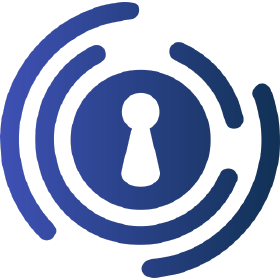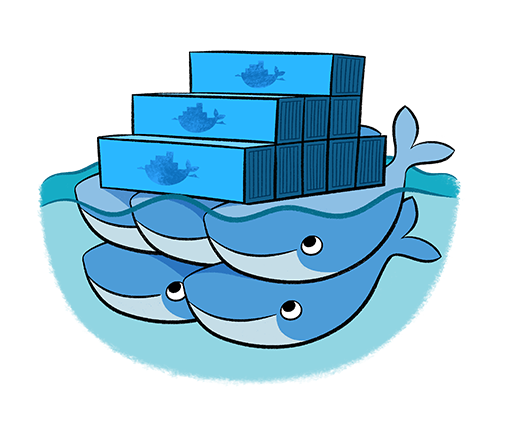Step by Step Setup Guide for Authelia
This article provides detailed instructions on integrating Authelia as a middleware with Traefik. Using Docker labels for configuration, this setup allows Traefik to query Authelia for authorization on every web request. Authelia validates session cookies and access permissions for secure resource control. The information is partially sourced from Brynn Crowley, referencing his setup guide.
Prerequisites
Important Notes
Configuration uses Docker labels directly in docker-compose.yaml to configure the Traefik Middleware.
Examples use a whoami application for demonstration.
Advanced configurations (e.g., SMTP) are available in Authelia documentation.
Step-by-Step Guide
Step 1: Create Folders in the GlusterFS
mkdir -p /mnt/glustermount/data/authelia_data/
mkdir -p /mnt/glustermount/data/authelia_data/logs
mkdir -p /mnt/glustermount/data/authelia_data/config
mkdir -p /mnt/glustermount/data/authelia_data/secretsStep 2: Create External Network for Traefik Proxy (if not already done)
Create the management_net network:
docker network create -d overlay management_netStep 3: Configure User Database
Create a basic user database:
nano mkdir -p /mnt/glustermount/data/authelia_data/config/users.ymlPaste this Content:
users:
authelia: ## Username
displayname: 'Authelia User'
## WARNING: This is a default password for testing only!
## IMPORTANT: Change this password before deploying to production!
## Generate a new hash using the instructions at:
## https://www.authelia.com/reference/guides/passwords/#passwords
## Password is 'authelia'
password: '$6$rounds=50000$BpLnfgDsc2WD8F2q$Zis.ixdg9s/UOJYrs56b5QEZFiZECu0qZVNsIYxBaNJ7ucIL.nlxVCT5tqh8KHG8X4tlwCFm5r6NTOZZ5qRFN/'
email: '[email protected]'
groups:
- 'admin'
- 'dev'The current password listed is authelia. It is important you Generate a new password hash.
Step 3.1: Generate Password Hash (Optional)
docker run --rm -it authelia/authelia:latest authelia crypto hash generate argon2Step 4: Create Secrets
docker run --rm -u 8000:8000 -v /mnt/glustermount/data/authelia_data/secrets:/secrets docker.io/authelia/authelia \
sh -c "cd /secrets && authelia crypto rand --length 64 session_secret.txt storage_encryption_key.txt jwt_secret.txt"Step 5: Create Basic Authelia Configuration
server:
address: 'tcp4://:9091'
log:
level: debug
file_path: '/var/log/authelia/authelia.log'
keep_stdout: true
identity_validation:
elevated_session:
require_second_factor: true
reset_password:
jwt_lifespan: '5 minutes'
jwt_secret: {{ secret "/secrets/jwt_secret.txt" | mindent 0 "|" | msquote }}
totp:
disable: false
issuer: 'aeoneros.com'
period: 30
skew: 1
password_policy:
zxcvbn:
enabled: true
min_score: 4
authentication_backend:
file:
path: '/config/users.yml'
password:
algorithm: 'argon2'
argon2:
variant: 'argon2id'
iterations: 3
memory: 65535
parallelism: 4
key_length: 32
salt_length: 16
access_control:
default_policy: 'deny'
rules:
- domain: 'traefik.aeoneros.com'
policy: 'one_factor'
- domain: 'whoami-secure.aeoneros.com'
policy: 'two_factor'
session:
name: 'authelia_session'
secret: {{ secret "/secrets/session_secret.txt" | mindent 0 "|" | msquote }}
cookies:
- domain: 'aeoneros.com'
authelia_url: 'https://auth.aeoneros.com'
regulation:
max_retries: 4
find_time: 120
ban_time: 300
storage:
encryption_key: {{ secret "/secrets/storage_encryption_key.txt" | mindent 0 "|" | msquote }}
local:
path: '/config/db.sqlite3'
notifier:
disable_startup_check: false
filesystem:
filename: '/config/notification.txt'Step 6: Create Docker Compose
It is important to know that Traefik needs to wait for Authelia to startup. Thats what the depends Function is for.
Otherwise Traefik will not notice the Authelia Middleware and maybe provide an Error.
version: '3.3'
services:
traefik:
user: 0:0 #Container being started with Root rights
image: 'traefik:latest'
security_opt:
- 'no-new-privileges=true'
restart: 'unless-stopped'
depends_on:
- authelia
ports:
# The Web UI (enabled by --api.insecure=true in traefik.toml)
- '8080:8080'
# The Available Ports (forward your router's incoming ports to the ports on the host)
- '80:80'
- '443:443'
networks:
management_net:
aliases:
- 'auth.domain.com'
authelia: {}
volumes:
# So that Traefik can listen to the Docker events (read-only)
- '/var/run/docker.sock:/var/run/docker.sock:ro'
# LetsEncrypt ACME Configuration
- '/mnt/glustermount/data/traefik_data/acme.json:/le/acme.json'
# Mount for Traefik AccessLog
- '/mnt/glustermount/data/traefik_data/access.log:/access.log'
# (STATIC CONFIG)
- './traefik/config/traefik.yml:/traefik.yml:ro'
# (DYNAMIC CONFIG)
- './traefik/config/dynamic.yml:/dynamic.yml:ro'
environment:
- TZ=Europe/Zurich
deploy:
mode: replicated
replicas: 1
labels:
- 'traefik.enable=true'
- 'traefik.http.routers.traefik.rule=Host(`traefik.domain.com`)'
- 'traefik.http.routers.traefik.service=api@internal'
- 'traefik.http.services.traefik.loadbalancer.server.port=8080'
- 'traefik.http.routers.traefik.tls.certresolver=leresolver'
- 'traefik.http.routers.traefik.entrypoints=websecure'
- 'traefik.http.routers.http-catchall.rule=hostregexp(`{host:.+}`)'
- 'traefik.http.routers.http-catchall.entrypoints=web'
- 'traefik.http.routers.http-catchall.middlewares=redirect-to-https'
- 'traefik.http.middlewares.redirect-to-https.redirectscheme.scheme=https'
#Authelia Integration
- 'traefik.http.routers.dashboard.middlewares=authelia@docker'
authelia:
image: 'authelia/authelia:4.38'
container_name: 'authelia'
volumes:
- '/mnt/glustermount/data/authelia_data/secrets:/secrets:ro'
- '/mnt/glustermount/data/authelia_data/config:/config'
- '/mnt/glustermount/data/authelia_data/logs:/var/log/authelia/'
networks:
authelia: {}
management_net: {}
labels:
## Expose Authelia through Traefik
traefik.enable: 'true'
traefik.docker.network: 'authelia'
traefik.http.routers.authelia.rule: 'Host(`auth.domain.com`)'
traefik.http.routers.authelia.entrypoints: 'websecure'
traefik.http.routers.authelia.tls.certresolver: 'leresolver'
traefik.http.services.authelia.loadbalancer.server.port: '9091'
## Setup Authelia ForwardAuth Middlewares
traefik.http.middlewares.authelia.forwardAuth.address: 'http://traefik_authelia:9091/api/authz/forward-auth'
traefik.http.middlewares.authelia.forwardAuth.trustForwardHeader: 'true'
traefik.http.middlewares.authelia.forwardAuth.authResponseHeaders: 'Remote-User,Remote-Groups,Remote-Name,Remote-Email'
environment:
TZ: 'Europe/Zurich'
X_AUTHELIA_CONFIG_FILTERS: 'template'
whoami-secure:
image: 'traefik/whoami'
restart: 'unless-stopped'
container_name: 'whoami-secure'
depends_on:
- authelia
labels:
traefik.enable: 'true'
traefik.http.routers.whoami-secure.rule: 'Host(`whoami-secure.domain.com`)'
traefik.http.routers.whoami-secure.entrypoints: 'websecure'
traefik.http.routers.whoami-secure.middlewares: 'authelia@docker'
traefik.http.services.whoami-secure.loadbalancer.server.port: '80'
traefik.http.routers.whoami-secure.tls.certresolver: 'leresolver'
networks:
management_net: {}
networks:
management_net:
external: true # Primary network for management
authelia:
Step 7: Start the Stack
You can either do that with the provided Command or start the Stack with Portainer.
docker compose up -dStep 8: Verify Setup
- Check container status:
docker compose ps - Access Traefik dashboard: https://traefik.domain.com
- Test authentication: https://whoami-secure.domain.com
Now you are ready to Setup with further Configuration.
It is possible to add Authelia Middleware to your Custom Applications by adding:
traefik.http.routers.YOUR-APPLICATION.middlewares: 'authelia@docker'
Troubleshooting
- Check logs:
docker logs authelia - Ensure secret files exist and have correct permissions.
- Check Official Docs: https://www.authelia.com/configuration/prologue/introduction/
Further Configuration
Check out other Posts in my Wiki about setting up SMTP for example. https://wiki.aeoneros.com/books/authelia/chapter/configuration



